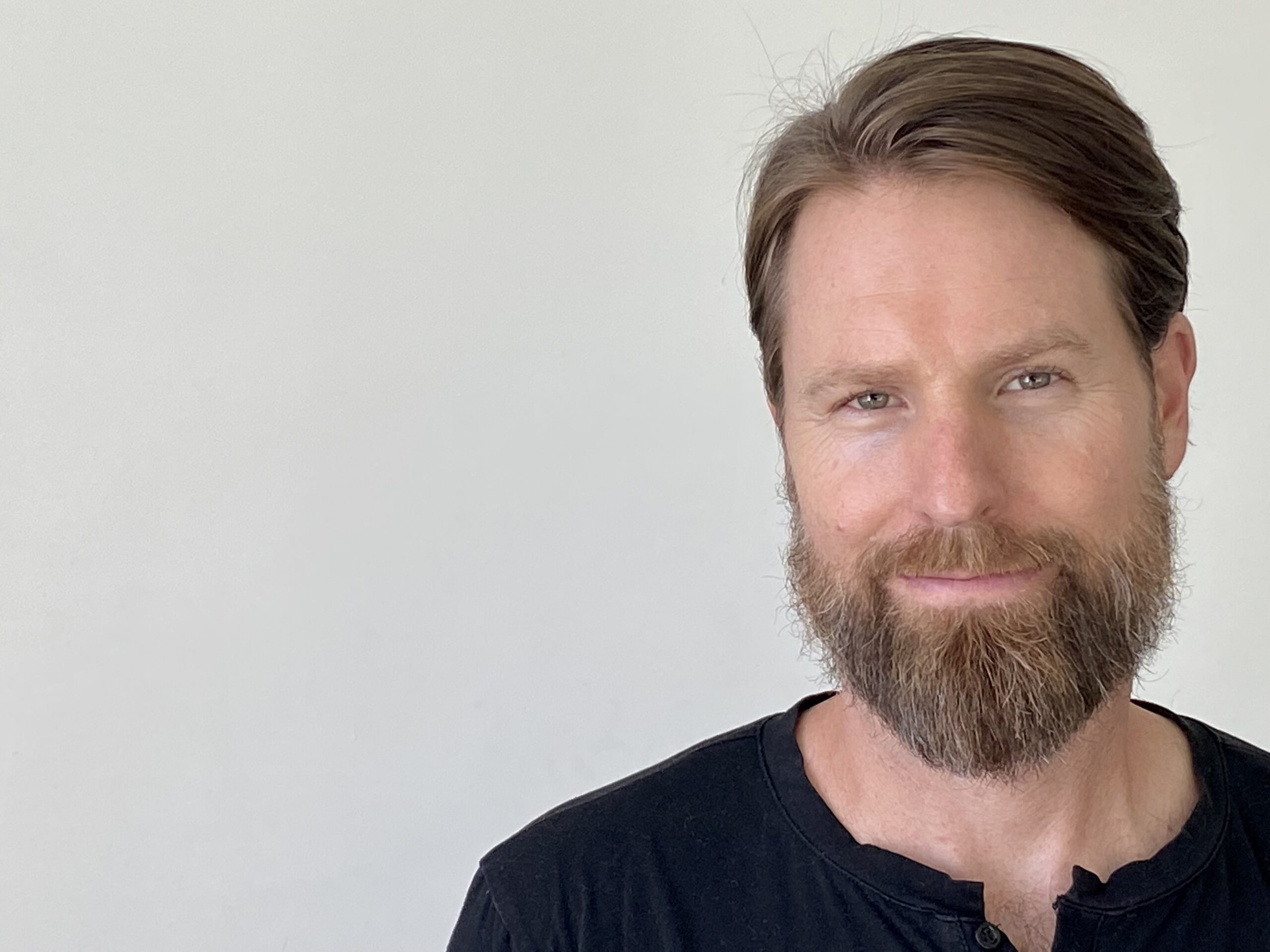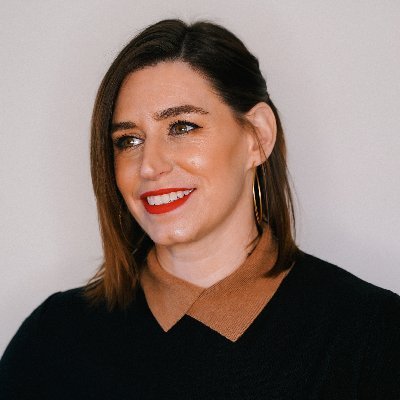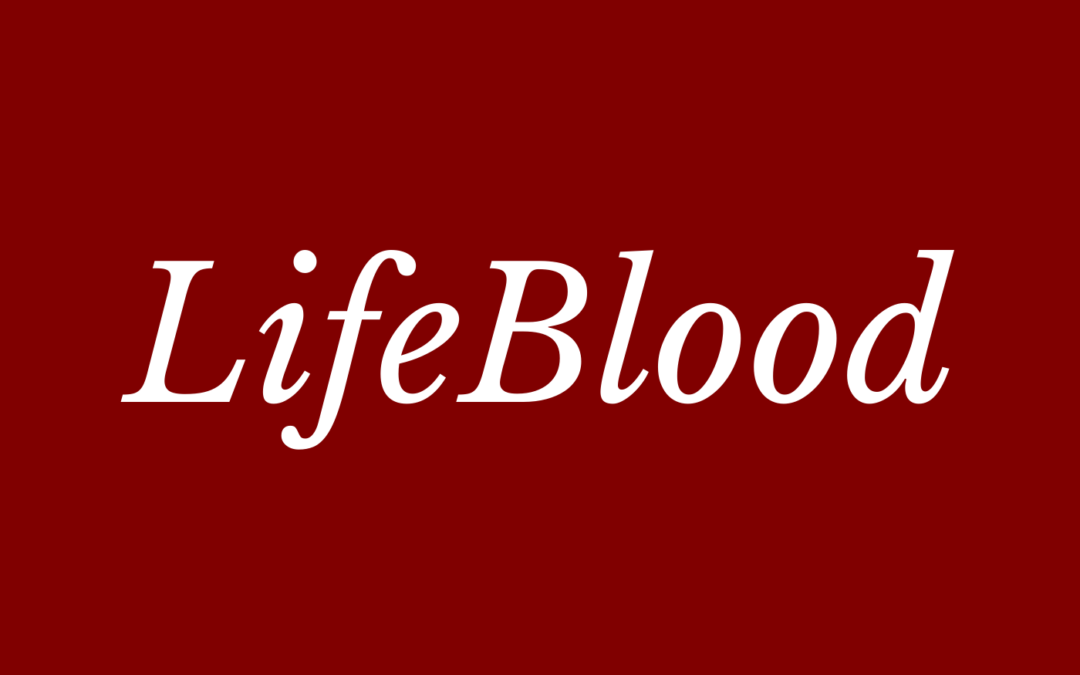What is Public Relations with Evie Smith Hatmaker
What is public relations and why should an organization do it? Evie Smith Hatmaker shares her perspective on the role it plays and the impact it can have!
Listen to us On
About the Episode
LifeBlood: We talked about is public relations, how it fits into the world of marketing, what makes for a “good” PR firm, and the value of diversity with Evie Smith Hatmaker, Founder and CEO of Rebellious PR.
Listen to learn a three-step process for having a great day!
You can learn more about Evie at RebelliousPR.com, Instagram and LinkedIn.
Thanks, as always for listening! If you got some value and enjoyed the show, please leave us a review wherever you listen and subscribe as well.
You can learn more about us at LifeBlood.Live, Twitter, LinkedIn, Instagram, YouTube and Facebook or you’d like to be a guest on the show, contact us at [email protected].

George Grombacher
Lifeblood Host

Evie Smith Hatmaker
Guest
Episode Transcript
george grombacher 0:00
Come on life blood This is George G and the time is right welcome. Today’s guest is strong and powerful Evie Smith hatmaker. Evie, how are you ready to do this?
Evie Smith Hatmaker 0:20
Yeah, let’s rock.
george grombacher 0:21
Let’s Let’s rock. Evie is the founder and CEO of rebellious PR, their public relations firm disrupting industries. Evie, tell us a little bit about your personal life some more about your work and why you do what you do.
Evie Smith Hatmaker 0:34
Yeah, personal life. I feel like my personal life is my professional life because I’m a business owner. But um, I would say when I describe myself to people, I you know, I played roller derby for 12 years. And that was a huge part of my life. I love team sports. I love supporting women in sports. I have a wife, I have a beautiful dog. Um, you know, just kind of like normal normal things. I guess my life at 40 is kind of boring by my 28 year old standards. But yeah, I’m the founder and CEO of rebellious PR and consulting. And we are a pretty unique PR agency that specializes in working with underrepresented founders.
george grombacher 1:17
Nice 12 years of roller, Dober Well, I think we should do an entire podcast just on that. So it’s like,
Unknown Speaker 1:25
it’s like a really messed up sorority, you know, where instead of like, wearing cute sweaters, and I don’t know, doing keg stands, we do you know, full body checks and get knee surgeries.
george grombacher 1:36
Right? And probably do cakes, that’s maybe potentially available. Got it? So after 12 years, what was the factor that said, 12 years is enough?
Unknown Speaker 1:51
Yeah, I mean, a couple of things. I’d had three knee surgeries. Um, when I started playing roller derby, I was 27. And when I finished playing roller derby, I was How old am I 40. I was like, in my late 40s, or late 30s. And there was this thing that had happened, in addition to my body starting to, like, you know, having to spend a lot of time nursing my body was that there was this entire generation of junior skaters that had started skating, you know, probably right around the time I started, we actually established Junior Derby league within our league. And like, it was just this huge wave of girls who had been just as much skating experience who are like 18, we’re coming into the big leagues. And it was, it was just like, hard. I don’t have the energy or the buoyancy, you have an 18 year old. And also, you know, when I started roller derby was this amazing social experience, and you know, being 3839. I love 18 year olds, but like, that’s not where I want to spend my free time like Been there, done that. And like, I couldn’t kind of like relive the day to day draw. And rebellious was taking off. So it was really just like this beautiful time to sort of like kind of go out on my own, and like, go on this, this journey. But I always like to say that rebellious is a business built on roller derby. And my one of my senior staff members is a gal that her and I played roller derby against each other for a really long time. She was in Los Angeles, and I was in Santa Cruz. And then we’ve had like, over the years, like handfuls of clients of other business owners who we knew through roller derby, who’ve, like brought their business to us. So it is very much like a sorority. And in that way, where it’s like, we kind of always stay connected. And even if I didn’t know somebody directly, we’re still sort of like, connected by the community of roller derby. So it’s pretty cool. It’s a pretty cool connection. I’m pretty proud that I did that for as long as I did.
george grombacher 3:50
Yeah. Awesome. Love it. All right, so So tell me about about PR, tell me about public relations. What is that? What does that mean?
Unknown Speaker 3:59
Yeah, I mean, that is also the question, I get a lot of biz dev meetings, people often don’t know what PR is, but know that they need it. Um, like very, like high existential level PR is the like feeling that somebody gets when they think about you, your products, your brand. Now there’s a lot of like manufacturing of that feeling that happens that um, you know, really, like get spread around the entire like marketing pie, I like to say and PR is sort of the the megaphone and all of the messaging, the advertising, all of the earned media. And so I think PR sort of spider webs into a lot of other areas like social media, influencer marketing, digital marketing, all of it, we kind of I feel like touch it in some way. But we’re really like, you know, setting the vibe for our company and really using our relationships to get the message out
george grombacher 5:01
Got it. Nice. So you talked about how PR is the megaphone of marketing? It seems like there’s probably a lot of overlap between all of this, some of it.
Unknown Speaker 5:14
Yes, yeah, absolutely. And I would say that’s sort of the reason why we’re actually, we have in the last couple years, like branch out of just doing PR, which traditional PR is really just like earned media. It’s like going out and getting articles for your clients. And it just felt like it was like, well, if we’re really good at this, why can’t we do paid media? Why can’t we do social media? Why can’t we do influencer? Why can’t we do branding? Because it all is sort of interconnected. And I feel like we have such a unique touch. And like, prerogative and like how we do work. And so yeah, it is we it is on everything. And we’re kind of I think trying to fully take over somebody’s marketing department at this at this point.
george grombacher 6:01
Yeah, I think that that’s awesome. So tell me about your unique your unique touch.
Unknown Speaker 6:07
Yeah, I mean, I think you know, there’s a few things that are really important to me, as a human being that I have established that rebellious I think one of them is honesty and transparency. I think that I really care about doing good work. I’ve always sort of jokingly called myself the Michael Jordan of PR. And like, if you watch that documentary, sometimes that guy’s pretty brutal, right? So I think that there is sort of this old school way of doing business where the clients always right, but then the clients not always right. And the work suffers because of that. And so what I’m interested in what my team’s interested in is, you know, working together creatively to create, like, the best possible end product that we think that the public is going to really enjoy and love. And so it’s really taking a product or a project or a campaign to its full potential. And we, you know, I think the other thing that’s really cool and unique about us is like we are very diverse agency, and that is by design. And you know, I read a lot of business books, I went, you know, heard a lot of TED talks, like the whole thing. And, you know, everybody points to, if you are in a room and you are with other people that graduated from the College you graduated with look just like you have the same experience, of course, you’re going to love your own ideas. And so I think what we’ve done is sort of created this natural tension to like really collaborate and push each other to like, do some amazing work.
george grombacher 7:28
Yeah, I appreciate that. the Michael Jordan of PR. Nice. So I think that that’s awesome. All right. Interesting, fascinating, super important. Diversity of, of, of all things, not just the way that we look, but the way that we think about things and our perspective, and our ideas, and, and everything. And so, that that that was somewhat intentional, it’s, it’s just probably in in your DNA. Tell me a little bit more about that.
Unknown Speaker 8:08
Yeah, I worked in Silicon Valley for about a decade. And I, as a gay woman in Silicon Valley, working in PR agencies, I really felt tokenized and isolated. I felt like, you know, I definitely had good friends that I worked with, where it like, wasn’t like a thing. But then when people don’t know, you, they only know this like identity, you know. And so, you know, I got stuck at the watercooler listening to a lot of boring conversations about somebody who’s like fourth cousin, who was a lesbian, and I was, like, you know, I like, this isn’t the only thing about me that’s like, you know, part of my identity. And I just felt like, if I was experiencing this as like a sis white woman, then like, what was it like for people of color? And like, why weren’t there more people of color at the agencies that I was seeing? And then, you know, really thinking into my own community, it was like, I couldn’t imagine the agencies that I was at would ever hire a trans person or a non binary human, you know, and it just really, like broke my heart that I couldn’t see people from my own community that I claim, like being a part of my day to day work. And so when the opportunity arose for me to go out on my own, you know, my first two employees were actually trans. And, you know, obviously, that wasn’t like, I intentionally was like, I’m gonna hire a trans person, but it was just like, okay, like, these were the people who were around me, who showed interest who because they were in my community. And it was really great to get to build the business in the early days. And like so many people who helped, you know, even if it was just like with admin, or you know, a single project, everybody was like from the queer community, and then it just kind of expanded from there.
george grombacher 9:56
Nice. I appreciate that. Yeah, and now that that you mentioned at the top that a big part of your business is serving under representative or underrepresented organizations or for lack of a better term niches.
Unknown Speaker 10:12
Yeah, um, I just felt like the best work I’d ever done in my career was when I was working with people or communities I cared about, I can, like, you know, shoot that that free throw. But like, you know, the the work that I feel like I’ve always been the proudest at for my time in Silicon Valley is when I was working with underrepresented founders, or companies that were being like truly disruptive in some like way that was, like, really unique to the consumer market. And so I, you know, I kind of created this filter to get to work with me. And I mean, the first thing was calling the company and rebellious, you know, so people knew kind of out of the gate, I’m either for them, or I’m not for them, you know, obviously, I’m not a conformist. And then the second level to that was like, Okay, we work with underrepresented founders. And if you are not an underrepresented founder, you know, that you’ve kind of got to get through these two filters to like, get to work with me, or like, want to work with me. And so there’s almost like an understanding of, you know, kind of core and key ethics there. And so, when we don’t work with underrepresented founders, it’s usually with some really awesome individuals who are like culturally, spiritually aligned with us in some way. But working with underrepresented founders, it just, I mean, it just felt like why are in other companies specializing in this? I guess it’s like my my question so many people and bizdev interviews ask us what what are like markets specialty is, and I’m just like, that’s boring to me. Because like markets, like expand and collapse all the time. Like, why would I base my business on that? Like, I’m in the business of humans and people and relationships? And that’s what I want to be my specialty?
george grombacher 11:56
Nice. certainly makes sense to me. Do you do you? Do you feel like, like, an underrepresented group can be a bit of an underdog? Is it a function of trying to break into the mainstream? Is it a function of just trying to change people’s perceptions? It’s all of it.
Unknown Speaker 12:21
Yeah, yeah, I think it’s also like this, especially in like what I do as far as like getting people’s stories out in the world, right. And I think that there’s a lot of gatekeeping, that happens. And I wanted to really break that down to give opportunity to underrepresented founders who might not otherwise be able to reach those gatekeepers. And so you know, there’s like some jokes about like, the queer mafia, and it’s like, I know, every gay person who’s a journalist, and they’ve probably written about my clients, and at some point time, if it’s relevant, but I think what I really wanted to do was like, break down this sort of cyclical system of gatekeeping, to give opportunities to underrepresented founders. And I mean, I think everybody who’s not a white sis, male in Silicon Valley is, is an underdog in some way, shape, or form. You know, it’s like a radical idea to have, you know, female founders, I heard this crazy statistic that only 5% of companies that have a million dollars of revenue a year are founded by women. And I was like, shocked by that, because we’re in that category. And I was like, how did I like, How did I become this in this, like, elite 5%, that’s wild to me. And then the, you know, it just gets smaller and smaller there, once you start thinking about, you know, black women and black trans women, black women who are getting, you know, found funding, you know, it’s just like it, it’s, it’s wild, that there’s, it feels like there’s so little opportunity and so what I guess what I’m trying to do is help create opportunity. But yeah, I everyone loves an underdog story, for sure. But I think I think that there’s there’s almost like something else there to it that I think really gets people excited. I think people love seeing themselves and good stories and success. So 1,000%
george grombacher 14:20
Yeah. I think I asked a pretty clunky question. But I think I, I am a I’m a person who who I fancy myself a pragmatic person, and I would just see opportunity everywhere. I’d see if I were in your shoes. And that’s it. Really, it really sounds like it sounds like that’s certainly what you’re doing and obviously, that you’re enjoying the success that you are is evidence that you are doing what you were doing and opportunity to take that number of 5% and make it you know, 50 or 100 Whatever, just just exponentially grow that so I think that that’s super exciting. What are what do you wish that The more people knew about PR.
Unknown Speaker 15:04
Yeah, I think I, I would love it, if people could just understand it a little bit more. I think that, you know, a lot of very like, consumer a pop culture level, there’s like PR is happening all the time in these like celebrity relationships or like when somebody has food poisoning, you know, it’s like, there’s all of that is PR, like a publicist is behind that. And so I think that there is sort of this veil that kind of needs to be pulled back a little bit more, I would say, you know, I’ve been doing this now, almost 15 years, and my parents still don’t really grasp what I do. I think like, once I became a business owner, they were like, Oh, you’re, you’re like a startup founder. You’re a business owner. But I’m like, I’m like, Mom, tell me what I do. And she would just be like, I don’t know, you go to parties. You travel. You talked to journalists, I think your wife’s a journalist. Yeah. So it’s, it’s, there is sort of, I think, good PR, the thing about good PR is you don’t see it. Right. So it’s like we have the the most invisible strings. bad PR is when you do get a sense of it. But I think it’s just like, you know, understanding that a lot of things that happen in the world in the public eye, that a lot of people worked to put that out there and to make it happen.
george grombacher 16:22
Yeah, interesting. That doesn’t surprise me necessarily, Ev, I think it’s hilarious that your mom still really doesn’t know what you do. That’s probably 1,000% true of me and my mom also. So that’s just kind of what it is. So, what how does a typical engagement start? Walk me through that process?
Unknown Speaker 16:44
Yeah, um, you know, usually, you’re looking for a PR agency, or you’re looking to do an event or a project, um, you know, we get a lot of inbound, we’re very blessed, like, knock on wood for that we always have been. And so everything starts with an exploratory call. And from there, we really identify like, okay, like, what are your hopes and dreams? Like? What are you really after with this product with this events with this campaign? And then we sort of like walk it back from there. Now, you know, do you want to be on the Ellen Show, okay, that’s not going to happen. Tell you that. But we will tell you, like what is realistic, and we’ll start to build out like an a strategy plan with the client, um, you know, engagement for us, like on a contractual basis looks, you know, we like to work with people, like for four months, unless it’s like, like, for a specific, shorter campaign, we feel that any company that is looking to start PR, is looking to do it, like on an ongoing basis, I always recommend contracting for at least four months with somebody because it takes about 12 weeks, for media for the media relations pitching to start to turn over and that is almost every single client every single time and I will tell you, at week eight, I get I always get the calls where people are like, I see a lot of pitches going out and I’m not seeing a lot of interest and I’m like I told you 12 weeks is 12 weeks. So I feel like four weeks is like or four months is really like an opportunity for any kind of agency s or anybody to like, really be able to show you what we got. And also to see if like the story is viable, like sometimes, you know, we’re great at our jobs, but sometimes what we have to work with isn’t the best, you know, or isn’t the best for what the climate is right now. And we’ve got to like try other strategies and tactics but yeah, I would say it’s a it’s a lot of talking any kind of engagement with us to start and then you know, we kind of build a unique machine for a client and you know, really start cranking it and I would say we’re very task driven and really hungry to win. We love winning. We work as a team over here you know, like when one team one one person on the team wins, we all win. And so it’s just I think we kind of become like a company’s cheerleaders. It when it when it all falls into place. Right? That’s really what we are. Love it.
george grombacher 19:13
All up. The people are ready for your difference making tip. What do you have for them? Yeah, I
Unknown Speaker 19:17
mean, we always have this thing and rebellious PR where we’re always telling each other to stay hydrated. It’s like a real important thing. I think it’s one of those things and COVID where it’s really easy to forget, but I think you know stay hydrated. wear your sunscreen and always ask why. So you’ll get three for one for me today.
george grombacher 19:37
Well I think that that is great stuff that definitely come stay hydrated. Wear sunscreen and always ask why powerful difference making tip I love it. Edie, thank you so much for coming on. Where can people learn more about you? How can they engage with you and rebellious PR?
Unknown Speaker 19:53
Yeah, just check us out at rebellious PR calm or we are on the Instagram At rebellious PR and drop us a line we’d love to hear from you.
george grombacher 20:05
Well, if you enjoyed this as much as I did show me your appreciation and share today’s show with a friend who also appreciates good ideas, go to rebellious PR calm and find them on Instagram as well and reach out and find out. There’s an opportunity to work together. Thanks, Kenny.
Unknown Speaker 20:20
Yeah, have a good one.
george grombacher 20:21
And until next time, keep fighting the good fight as we’re all in this together.
Transcribed by https://otter.ai
More Episodes
Using Annuities to Create Tax-Efficient Income in Retirement
One of the biggest challenges in retirement planning is managing taxes effectively. Many retirees focus on accumulating wealth but overlook the impact of taxes on their income. Without a well-structured strategy, taxes can eat into your retirement savings and reduce...
How to Overcome the Fear of Running Out of Money in Retirement with an Annuity
One of the most common fears among retirees is running out of money. After working for decades, the last thing anyone wants is financial insecurity during their golden years. The fear of outliving your savings can be paralyzing, leading to stress and uncertainty....
The Power of Minimalist Money Habits: Simplifying Your Finances for Greater Freedom
In today's fast-paced world, it’s easy to get overwhelmed by the complexity of managing finances. We’re bombarded with credit card offers, investment options, and various spending temptations, all promising to help us live better lives. Yet, in the midst of it all,...
The Right Questions to Ask Yourself When Considering an Annuity for Retirement Income Planning
Annuities can be a powerful tool for creating reliable retirement income, but they’re not a one-size-fits-all solution. Before purchasing an annuity, it’s essential to evaluate whether it aligns with your financial needs, goals, and risk tolerance. Asking the right...
How to Guarantee You’ll Never Run Out of Money in Retirement
One of the biggest fears retirees face is outliving their savings. With rising life expectancy, unpredictable markets, and increasing healthcare costs, ensuring that your money lasts a lifetime is a top priority. Fortunately, there are strategies you can implement to...
How Taxes Can Reduce Your Income in Retirement
When planning for retirement, it's easy (and prudent) to focus solely on saving enough money or making wise investment choices. However, one crucial factor that is often overlooked in retirement income planning is taxes. While many retirees expect to pay less in taxes...
The Benefits of Stock Dividends for Retirement Income Planning
As we approach retirement, one of our primary goals is to ensure a reliable income stream to sustain our lifestyle. While there are several options available for generating retirement income, many retirees are increasingly turning to stock dividends as a key component...
The Value of Fixed Annuities in Retirement Income Planning
As retirement approaches, people find themselves grappling with the challenge of ensuring a reliable income stream during their golden years. One popular solution to this problem is the fixed annuity, a financial product that offers a guaranteed income for life or a...
Your Personal DOGE
Your Personal DOGE The DOGE is about to take a knife to the federal government. Could you benefit from a personal DOGE to cut some of your expenses? George G talks about how to reduce your overhead and get moving in the right financial direction!About the EpisodeThe...
Join the show.
Interested in being on the show? Tell me a little bit more about you and what you’d like to talk about!














